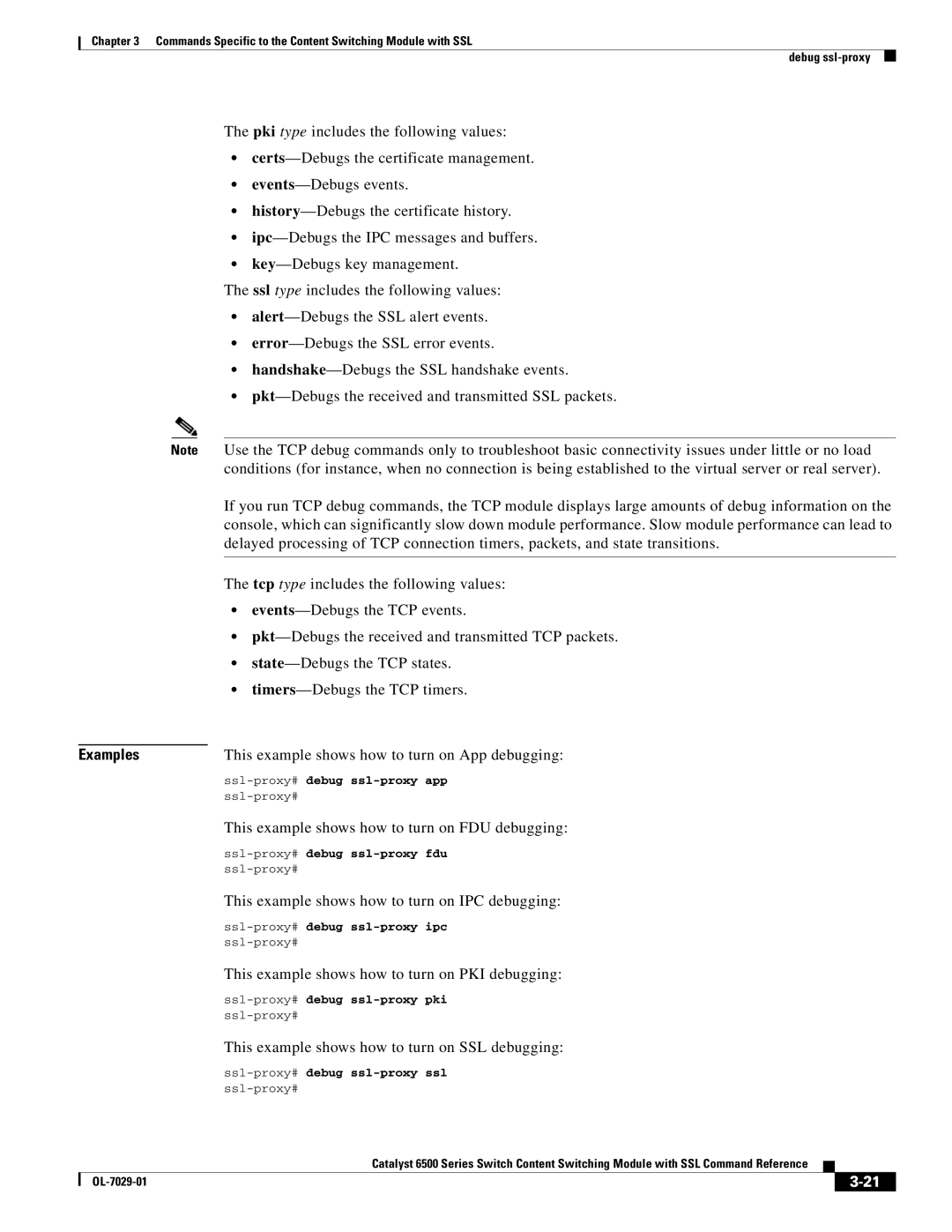
Chapter 3 Commands Specific to the Content Switching Module with SSL
debug
The pki type includes the following values:
•
•
•
•
•
The ssl type includes the following values:
•
•
•
•
Note Use the TCP debug commands only to troubleshoot basic connectivity issues under little or no load conditions (for instance, when no connection is being established to the virtual server or real server).
If you run TCP debug commands, the TCP module displays large amounts of debug information on the console, which can significantly slow down module performance. Slow module performance can lead to delayed processing of TCP connection timers, packets, and state transitions.
The tcp type includes the following values:
•
•
•
•
Examples | This example shows how to turn on App debugging: |
This example shows how to turn on FDU debugging:
This example shows how to turn on IPC debugging:
This example shows how to turn on PKI debugging:
This example shows how to turn on SSL debugging:
ssl-proxy# debug ssl-proxy ssl
Catalyst 6500 Series Switch Content Switching Module with SSL Command Reference
|
| ||
|
|
